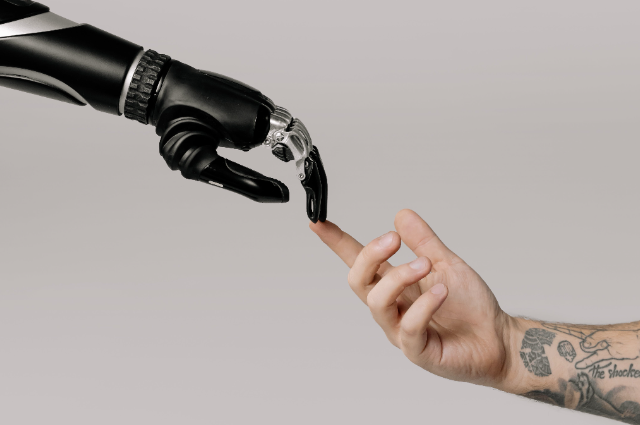
Introduction:
Artificial Intelligence (AI) has rapidly evolved in recent years, transforming various aspects of our lives. From virtual assistants and recommendation algorithms to self-driving cars and advanced medical diagnostics, AI is becoming an integral part of our daily existence. However, with this technological progress comes the concern about the potential control AI might exert over human society. This article delves into the multifaceted dimensions of AI, exploring both its promises and the apprehensions surrounding its influence on humanity.
I. The Evolution of AI:
To comprehend the potential control AI might have over us, it is essential to understand the evolution of AI. Starting with narrow or weak AI, which specializes in specific tasks, to the more advanced general AI that can mimic human cognitive functions across various domains, the journey of AI has been marked by rapid advancements. This section will discuss the historical context, breakthroughs, and the current state of AI technology.
II. AI in Everyday Life:
The integration of AI into daily life is undeniable. Smartphones, social media, and online platforms leverage AI to personalize user experiences, provide recommendations, and streamline processes. This section explores the impact of AI on various industries, highlighting its positive contributions to efficiency, convenience, and innovation.
III. Ethical Considerations:
As AI becomes more sophisticated, ethical concerns arise. This section examines the ethical considerations surrounding AI, including issues related to bias, transparency, and accountability. Discussions on the ethical use of AI in areas like law enforcement, healthcare, and finance will be explored, shedding light on the need for responsible AI development.
IV. AI and Employment:
The rise of automation and AI technologies raises questions about their impact on the job market. This section analyzes the potential displacement of jobs due to AI and discusses strategies for mitigating these effects. It also explores the role of AI in creating new job opportunities and reshaping the nature of work. V. Societal Impact:
AI's influence extends beyond individual lives to shape entire societies. This section examines the societal impact of AI, including its role in governance, education, and healthcare. Discussions will revolve around the potential benefits and risks associated with AI-driven societal changes.
VI. The Fear of Autonomous Systems:
One of the major concerns surrounding AI is the fear of autonomous systems surpassing human control. This section delves into the concept of superintelligent AI and the hypothetical scenarios where AI systems may act against human interests. Discussions will explore the need for safeguards and regulations to prevent such scenarios.
VII. Regulatory Frameworks:
To address the challenges posed by AI, governments and organizations worldwide are developing regulatory frameworks. This section examines the current state of AI regulations, discussing global initiatives and their effectiveness in ensuring responsible AI development and deployment.
VIII. The Role of AI in Shaping the Future:
Despite the concerns, AI holds immense potential for positive transformation. This section explores how AI can be harnessed to address global challenges, enhance scientific research, and contribute to sustainable development. Discussions will focus on striking a balance between innovation and ethical considerations.
Conclusion:
As AI continues to evolve, its impact on humanity remains a topic of intense discussion and debate. This article has explored the multifaceted dimensions of AI, from its evolution and everyday applications to ethical considerations and societal impacts. While concerns about AI controlling us persist, proactive measures, ethical guidelines, and responsible development practices can help navigate this complex relationship, ensuring that AI becomes a force for positive change rather than a source of apprehension.
